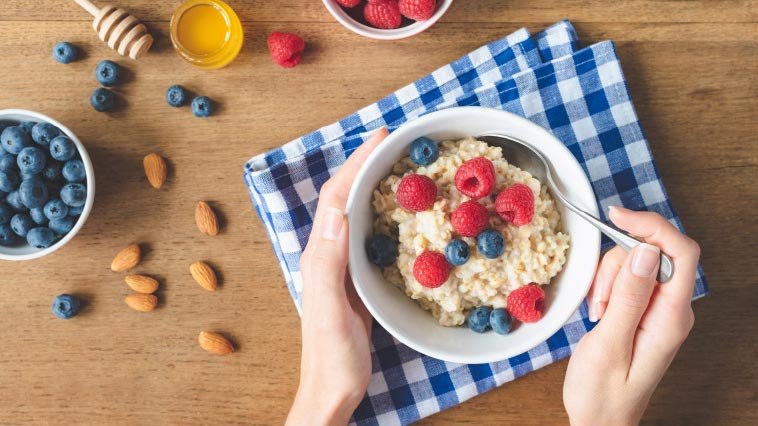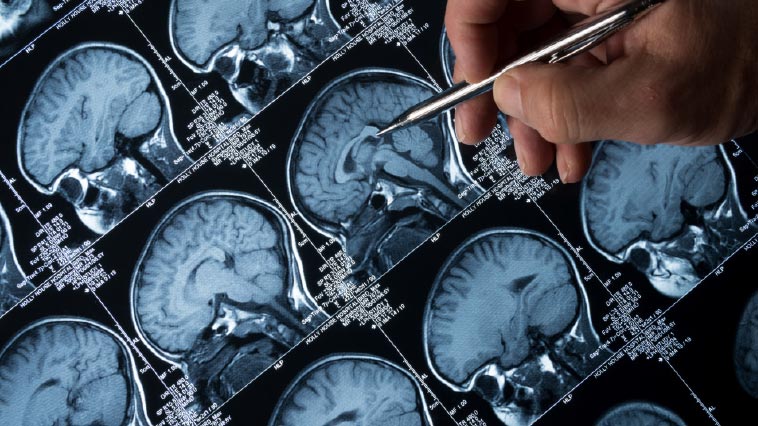 Get Sunscreen Smart
Get Sunscreen Smart
New US Food and Drug Administration (FDA) data reveals chemicals in sunscreens are absorbed into the human body at levels high enough to raise concerns about potentially toxic effects. A report found bloodstream levels of four sunscreen chemicals increased dramatically after test subjects applied spray, lotion and cream for four days as directed on the label. It added that chemicals, such as avobenzone, octocrylene and particularly oxybenzone, might disrupt normal hormone patterns. However, experts say you shouldn’t stop using sunscreen. Those concerned about the safety of chemical sunscreens can go for mineral versions, which rely on zinc oxide and titanium dioxide to reflect sunlight from the skin, rather than absorbing it like chemical sunscreens.
 Eat Your Breakfast
Eat Your Breakfast
Skipping breakfast might increase your risk of developing cardiovascular disease. The connection, found in a study of 6,550 adults aged 65-75, was particularly strong for strokes.
Almost 60 per cent of the participants had breakfast every day, a quarter on some days, and 16 per cent rarely or never. All were free of heart disease at the start of the study. Over an average 17 years of follow-up, there were 2,318 deaths, including 619 from cardiovascular diseases. People who never ate breakfast were more likely to be obese and have high cholesterol. Compared with those who had breakfast every day, those who skipped the meal had an 87-per-cent increased risk of death from any cardiovascular disease and a 19-per-cent increased risk of death overall. Breakfast skippers had a 59-per-cent increased risk of developing heart disease, and more than triple the risk of stroke.
 Early Detection Tool
Early Detection Tool
A collaboration between Alzheimer’s Research United Kingdom, the University of East Anglia (UEA), University College London and Deutsche Telekom has resulted in a game that may help experts detect who is at risk of Alzheimer’s. The Sea Hero Quest game, which encourages players to find their way around various mazes has been tried by more than 4.3 million people globally. Researchers compared how different people played the game and found some interesting results. Those with a genetic predisposition to Alzheimer’s “took less efficient routes to checkpoint goals” and “performed worse on spatial navigation tasks”. Early stage diagnosis (even prior to symptoms like memory loss) before there’s too much damage to the brain allows future Alzheimer’s treatments to be effective.
 Weight Loss Miracle
Weight Loss Miracle
Plenity, a new capsule developed by biotechnology company Gelesis, was recently cleared by the US Food and Drug Administration to help overweight and obese adults. The hydrogel capsule releases thousands of particles that absorb water and swell to create small individual gel pieces. These react in the stomach and small intestine, helping to make you feel full, which may lead to weight loss. Once in the large intestine, the hydrogel is partially broken down by enzymes, loses its three-dimensional structure, releases the water that was absorbed and then gets expelled in faeces. Unlike other weight loss medications, it is said to have no adverse effect on the central nervous system.
 Student Benefits
Student Benefits
A new Michigan State University (MSU) study adds to growing evidence that participating in recreational sports may not only help improve grades while attending college, but may also help students return for another year. Among nearly 1,800 recent freshmen at MSU, students who played intramural sports averaged a 3.25 grade point average at the end of their first year compared to a 3.07 GPA for those who didn’t play. Students were matched based on factors including high school GPA, gender, race, socioeconomic status, if they lived on campus and if they were a first-generation student. According to the researchers, anywhere between four to seven different activities throughout the year, from playing ultimate frisbee to taking an aerobics class each week, makes for an inclusive environment and helps students do better.




































